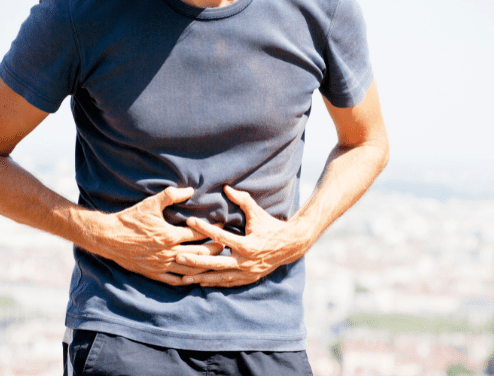Protect Yourself Against Chikungunya
Chikungunya is a mosquito-borne viral infection spreading rapidly in popular travel destinations, which can lead to long-term complications including chronic joint pain and inflammation, arthritis-like symptoms and neurological complications.
We are one of the first clinics in the UK to offer the two chikungunya vaccines that are now available – Ixchiq® and Vimkunya®.
Book your chikungunya vaccine consultation today and get expert travel health advice from our experienced team.
BOOK CHIKUNGUNYA CONSULTATION
RISK AREAS
The disease is found in countries across Asia, Africa and the subtropical regions of the Americas.

SYMPTOMS
Common symptoms include fever, rash, and severe pain in multiple joints.

RECOVERY
Some symptoms typically resolve between one to two weeks, but disabling symptoms may persist for months or years.

PROTECTION
Two vaccines – Ixchiq® and Vimkunya® – provide long lasting protection.

Travellers' Diarrhoea Medical Kit
A comprehensive collection of essential medications and supplies designed to help you diagnose, treat, and manage diarrhoea and related symptoms while travelling.
FAQS
Chikungunya is a mosquito-borne virus that was first identified in Tanzania in 1952.
It can cause a debilitating infection in people of all ages. It is spread by the bites of Aedes mosquitoes belonging to two species, one which predominates in urban parts of the tropics, and the other which is increasingly found more temperate regions, raising the prospect of increasing future spread to regions such as southern Europe.
The first major outbreak occurred in 2006, affecting Africa, Southeast Asia and the Indian Ocean – before this, initial outbreaks were sporadic and isolated. During this outbreak, a mutation occurred, resulting in a 40-fold increase in transmission.
Further sporadic cases followed, including localised cases in southern Europe. Chikungunya reached the Americas in 2013, since when there have been nearly 4 million cases, with significant outbreaks in Paraguay and Brazil.
It is difficult to know the full extent of the disease burden globally, since resources for testing are quite limited in the places at highest risk, and the disease itself is easily confused with Dengue. In 2023, the regions most affected were: South America (mostly Brazil, Paraguay, Argentina), Asia (mostly India, Philippines, Thailand, Malaysia, Pakistan), Africa (Burkina Faso, Senegal, Mali, Gambia, Namibia), with occasional cases in Southern Europe. The disease has expanded to reach over 110 countries around the world, and is expected to spread further as climate change expands the range of the vector mosquitoes and speeds up the virus transmission cycle, with ongoing international travel to affected parts of the world.
Three quarters of the world’s population live in risk areas for Chikungunya.
Chikungunya causes fever and severe, often debilitating joint pain.
Other common symptoms include rash, myalgia, joint swelling and neurological symptoms.
Symptoms vary in duration but generally resolve after 2 weeks.
More significantly, infection can lead to chronic complications, including chronic joint pain, fatigue, depression and relapse of rheumatological symptoms or dermatological disorders. As a result, many patients experience significant and long-term impairment of quality of life: about 20% to 60% of patients develop severe and debilitating long-term symptoms, including persistent joint pain, fatigue, and depression.
Female travellers, older adults, and those with severe acute disease and/or pre-existing conditions, are at increased risk of chronic disease.
There is also evidence that infection during pregnancy can lead to cognitive impairment in the newborn.
Everyone visiting countries with a risk of mosquito-borne infection should take careful precautions to reduce numbers of insect bites.
Insects spread many diseases in tropical countries, not just Chikungunya.
Careful precautions against insect bites can reduce the risk of infection by up to 90%.
Suitable precautions include:
- using insect repellent at times when mosquitoes are biting, (the mosquitoes that spread Chikungunya often bite during the day as well as at night)
- covering exposed skin when outdoors
- applying an insecticide such as permethrin to clothing, that will kill mosquitoes on contact
- using a mosquito bed net at night
- using an insect killer in your room.
Two vaccines are available.
Ixchiq® is a live vaccine, so on theoretical grounds should not be given during pregnancy or while breastfeeding, or to anyone who is immunosuppressed. There are also cautions for older individuals.
Vimkunya® is a non-live VLP (“virus-like particle”) vaccine with fewer restrictions on use.
We will be happy to help you make the most suitable choice.
Both Chikungunya vaccines consist of a single dose.
Like infection with Chikungunya itself, which results in lifelong immunity, the live vaccine is expected to provide long-lasting protection.
It is probable, but not yet clear, that the VLP vaccine will require booster doses in future.
You must seek medical attention if you develop any feverish illness whilst travelling.
If you are unwell on your return home, book an appointment with one of our doctors. In addition to Chikungunya, it’s important to rule out malaria.
No, these vaccines will only be available privately.
In general, we recommend vaccination at least 10 days before you intend to travel, to give enough time for vaccines to take effect.
There are no suitable antiviral treatments available. Treatment is mostly based on symptoms. Some of the long-term arthritic complications can be very difficult to treat, which is why prevention with vaccination where possible, and anti-insect precautions, are strongly recommended.